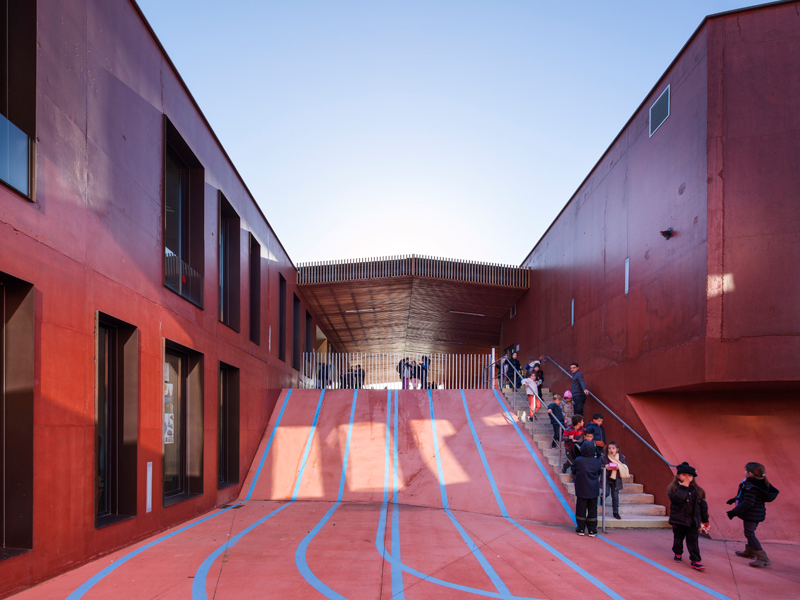
22 Recommendations for Development of Creative Industry in Georgia
Recommendations for the Central Government (Ministries of Culture, Economy and Education)
-
Integration of a creative economy into the state policy in order to foster country competitiveness and sustainable development, which implies the following:
-
the central government should announce the sector as priority, and take responsibility for its development,
-
use of international practices and conduct analysis with stakeholders for undertaking relevant steps for sector development jointly
-
Setting up of the interagency commission which will work out a joint action plan and begin implementing with other partner groups and stakeholders.
First of all, the above referred plan should stipulate for bringing of the education system in compliance on the basis of qualified research of the sector, development of methodology of investment into infrastructure and funding mechanisms of the sector.
-
Division of authority of implementation of policy and allocation of funds – this is the necessary attribute of modern policy and ensures establishing of balanced environment for development of the sector.
-
Introduction of the practice interdisciplinary research – creative economy should be separated from the overall economy, which shall contribute to better identification of creative practice and the contribution of creative industries in the overall economy. It is necessary to provide financial support for research, targeted towards identification of different components.
-
Support of analytical work in the sector - in order to use international practices, it is necessary to conduct preliminary analysis and consideration of country context. It is necessary to examine the criteria of national identity, develop the models, which take into consideration overlapping interests of the public, the state and representatives of creative sector, and develop educational programs on the basis of such models.
-
Investing into the infrastructure of creative industries - in conditions of current unstable economy investment into creative industries shall provide sound basis for future competitiveness of the country, strengthening of social sustainability, awareness rising of public regarding contribution of the culture and creativity into prosperity and well being of the country and future generations. We need to be patient while investing into the sector, and in regard to getting benefits from private-public partnerships.
-
Updating of funding methodology taking into consideration interests of the beneficiaries – it is necessary to set up a special commission, members of which shall be representatives of the public sector, as well as potential beneficiaries and representatives of civil society organizations. This shall contribute to better taking into consideration interests of stakeholders in the course of introduction of new funding methodology and ensuring fair allocation of resources.
-
Integration of culture and creativity at tall stages of educational process - introduction of methodology of development of creative skills at the level of pre-school, secondary and vocational education. Analysis of all stages of educational process and different sectors of culture jointly with the relevant ministries, responsible for development of policy (Ministries of Culture, Education and Economy) and representatives of creative industries (experts, professionals), as well as identification of creative approaches, development of educational programs and retraining of teachers.
-
Developing the new sources of financing the sector -There should be appropriate legal and financial environment that enables culture and creativity to be financed through alternative ways. Successful completion of reforms of “Georgian lottery”, initiated in 2007, adoption of the Law on Lotteries and gambling businesses, restoring of public interest.
-
Introduction of rotational shifting of the management of the state-funded cultural organizations - this will motivate professionals from the cultural sphere and support the involvement of young professionals of creative industries.
Recommendations for Local Government (Regions and cities)
-
Elaborating local strategies and programs for promotion of development of cultural and creative industries - The above referred documents should be integrated into regional development strategies, targeted towards regional or urban development and support their uniqueness and business development.
-
Setting up of creative commissions in every town or region, into compositions of which shall be included representatives of creative industries and other businesses - it is necessary to promote collaboration of all stakeholders in the process of implementation of strategy and development of policies. This shall assist to establishing of public-private partnership, promote identification of creative initiatives, and increase public awareness in the region about the potential of creative economics.
-
Elaboration of guidelines for development of creative economy in small towns – this shall allow local government to establish a define development strategy in collaboration with local population, elaborate action plans, and plan implementation stages jointly.
Recommendations for Cultural Organizations and Professionals
-
Rising of public awareness regarding the potential of culture and creative industries. Overall attitude of population towards culture and creativity should be substantially transformed (as a part of everyday life, instrument for development of economy, interdisciplinary cooperation process and a source employment). All stakeholders, participating in the process of development of culture and creative industries within the limits of their capacities and in the course of communication with public should stress the opportunities that the sector provided for economic development.
-
Establishing the networks of cultural and creative organizations and professionals, representing the sector - Active communication and cooperation are preconditions for development. The networks allow for implementation of large-scale projects and conducting of awareness raising companies, which promote involvement of population, and lobbying the interests of the sector in front of the government, so that it undertakes relevant steps for development of the sector. These actions will assist creative groups to plan their activities according to societal interests, that guarantees sustainable development of the country.
Recommendations for Educational Institutions
-
The sector of higher education should play more active role in development of the creative entrepreneurship and leadership skills –this implies direct cooperation with industries, leadership and the development of entrepreneurship skills among the students, establishment of creative incubators and development of new business models within these institutions, active coordination with business organizations and social engagement of the community for the purpose of promotion and support of creative thinking and innovative approaches.
-
Setting up of student project development funds in universities – it is necessary to support ideas of students, studying in universities, so that they have opportunity of forming working groups for joint development and implementation of their ideas prior to coming across challenges on the real market.
-
Promoting the practice of continuous professional education for adults - promotion of development of skills of use of digital technologies, so that entrepreneurs from creative industries have opportunity of finding new ways of development of their competencies and skills for retaining sustainability on the market and starting of new careers, as well as promotion of cooperation between different generations for developing of high quality products and services.
-
Development of targeted educational initiatives for creation of new jobs and promotion of sustainable career development of young professionals - employment in creative industries promote to development of critical skills, use of which in other sectors is extremely important. Creative entrepreneurship can contribute to creation of new jobs.
-
Development of guidelines for each sector for promotion of active involvement of young people in creative industries – development of such guidelines shall help students to analyse market challenges of a particular sector, which shall help them to develop business plans, adjusted to real environment. The process of elaborating of guidelines shall itself contribute to better understanding of barriers within the sectors, and promote to their removal.
Recommendations for Creative Industry and Other Business Representatives
-
Forming alliance of all stakeholders in order to develop culture and creative industries in the country – formation of the Alliance shall help to identify all potential partners, coordinate methodology of cooperation and plan relevant activities, determine clear short-term plans, and set up decision making and alliance management structure. This shall be a powerful tool for lobbying changes in front of the public structures and stating of the coordinated standpoint of representatives of the sector.
-
Creating of an online knowledge bank - Exchange of the best practices and examples of successful cases in the sphere of policy and individual projects; publication and dissemination of quarterly bulletins regarding local and international trends and events; dissemination of information regarding examples of successful cooperation between the business-sector and cultural organizations; identification of examples of creative thinking and integration of creative approaches in business sector.
Celebration of the "Creativity Day" in order to raise public awareness. Planning and conducting of annual event for the purpose of raising awareness of population regarding the potential of culture and creative industries, organizing of “Creative City” competition for engagement of regions and small towns in the process.




